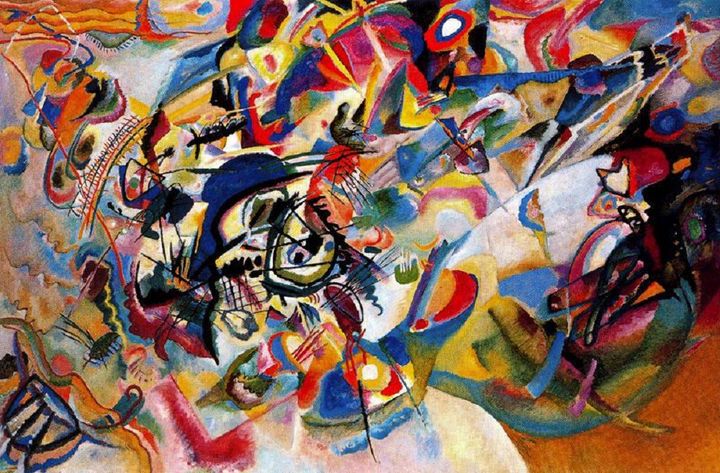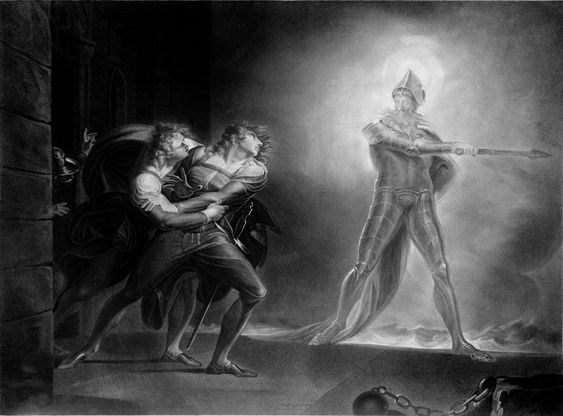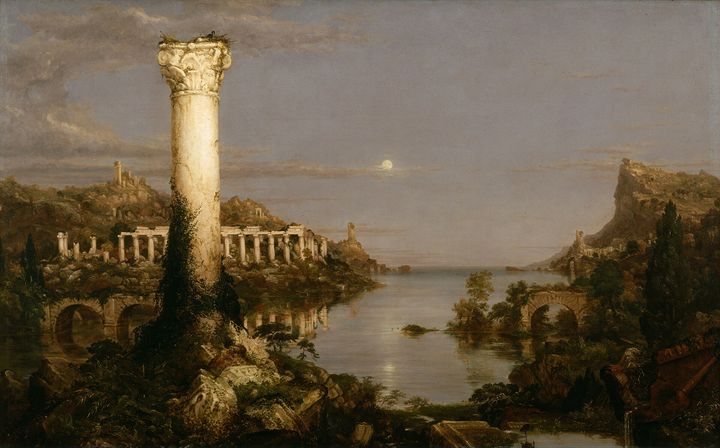Narrative Magnification
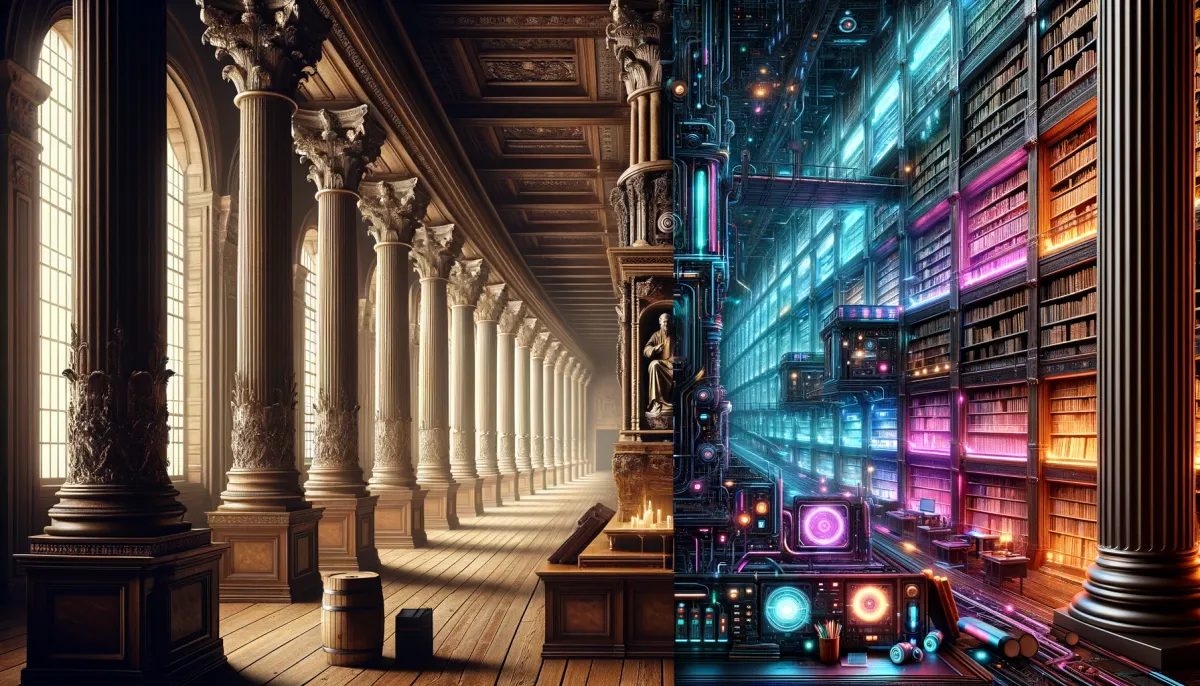
The movie director Michael Bay is often ridiculed by those who consider his motion pictures to be gaudy and over-the-top. I mostly agree, but there are some aspects of his film-making that are quite masterful and deserve closer attention.
I will describe a shot from one of his films, and I have no doubt that the description will be familiar to many as the signature Bay style.
A few characters are centered in the frame, which otherwise contains blue sky. The audience gets a sense of the distance from the camera to the characters.
But the characters are not looking at the camera; they are looking at something behind the camera, unseen by the audience, and they are looking up and far into the distance so that the audience understands that what the characters are seeing is very large and very far away.
To add to the sense of scale, far behind the characters, but in the frame, the audience can see a squadron of warplanes flying in formation.
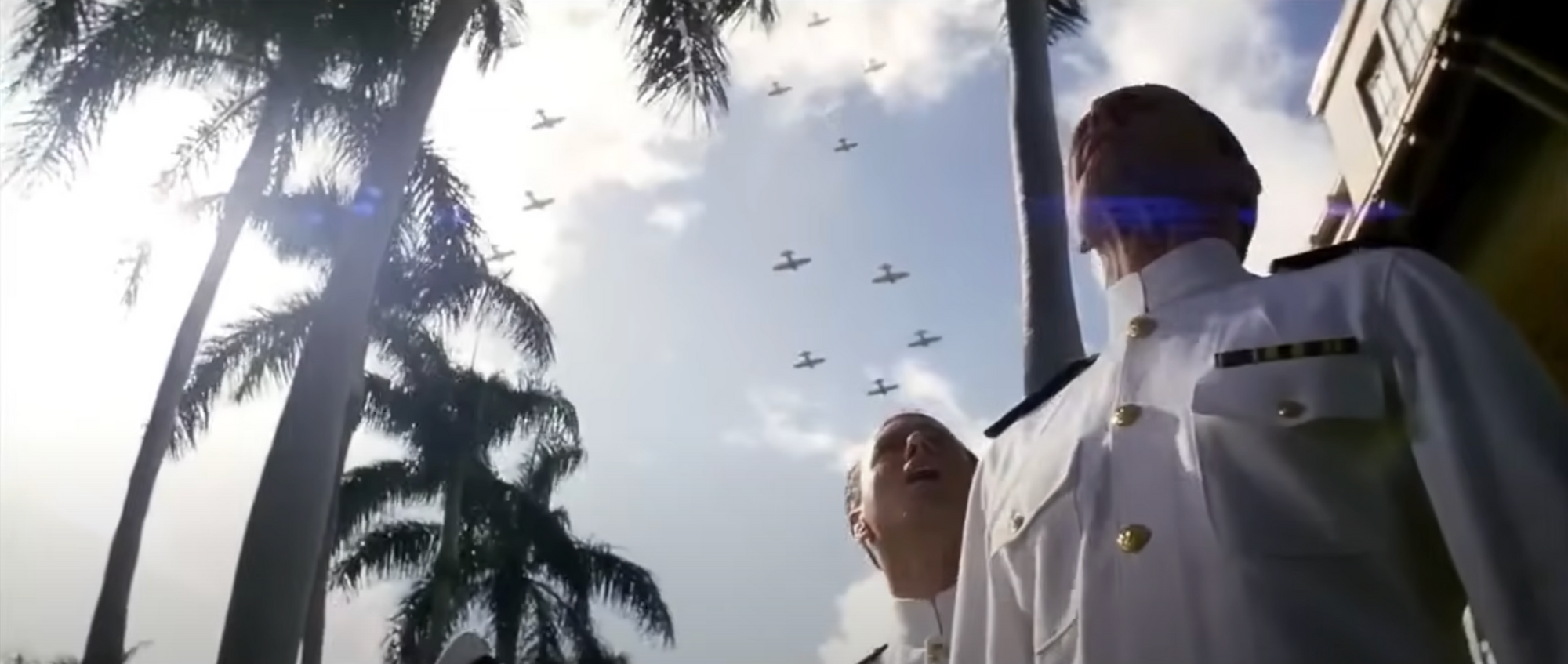
Using the combination of these three distances, (A) from the camera to the characters, (B) from the characters to the unseen object, and (C), from the camera to the distant warplanes, Michael Bay masterfully creates a telescopic expanse for the viewer to experience.
A point to remember clearly: Bay uses both what is seen and what is unseen to create this sense for the viewer.
It is possible to achieve a similar effect in writing. I enjoy it every time I come across it and I don't have a word for it, so I will call it Narrative Magnification.
It is the effect produced by a few simple words to cause an explosion of context in the reader's mind, drawing the reader deeper into what they imagine must be a rich and detailed world. I will give some examples that I have seen and enjoyed.
One of my all-time favourite examples can be found in the opening scene of the movie Pitch Black, starring Vin Diesel. The pilot and captain of a spaceship are abruptly awakened from cryosleep by a meteor strike that has damaged the ship. They spend a few minutes trying to determine what has happened.
The Narrative Magnifier can be found in a hasty line from the captain as his pilot is reporting a serious problem with the ship.
"Just tell me we're still in the shipping lane!"
The mere mention of "shipping lane" carries with it a whole world of context in the viewer's mind.

The story begins in a spaceship. A shipping lane implies shipping. Shipping what? Products? Supplies? People? If there is one shipping lane, surely there are others. This one phrase implies a vast, interconnected web on an interstellar scale for moving something between important locations. That means there are multiple locations. In fact, probably as many locations as there are cities on Earth.
Lanes implies some form of order or organisation to coordinate a huge number of vessels repeatedly making similar journies. This is comparable to ocean shipping or air traffic control that we already have an idea of. A beautiful chaos explodes in the viewer's imagination as they apply what they are familiar with to the vast unknown of space.
For the low price of two words in a throwaway line, the writer has tapped into an overwhelming sense of scale in the mind of audience.
Another example deals with historical context, implying a huge string of events, rather than a comprehensive logistics network. It can be found in the movie V For Vendetta as two police detectives, Mr. Finch and Dominic, are discussing a prominent ruling party member, Lewis Prothero. Mr. Prothero has recently been found dead in his home and the detectives are attempting to piece together the circumstances of his demise and suspect they might be connected to earlier incidents involving the title character, V.
During their investigation, Mr. Finch studies Mr. Prothero's file. He notices something and calls Dominic over to see it.
"Take a look at this. Prothero's military record."
Dominic reads. "Uh... Iraq, Kurdistan, Syria, before and after, Sudan. Busy boy!"
Before and after what? Dammit. Before and after what!?
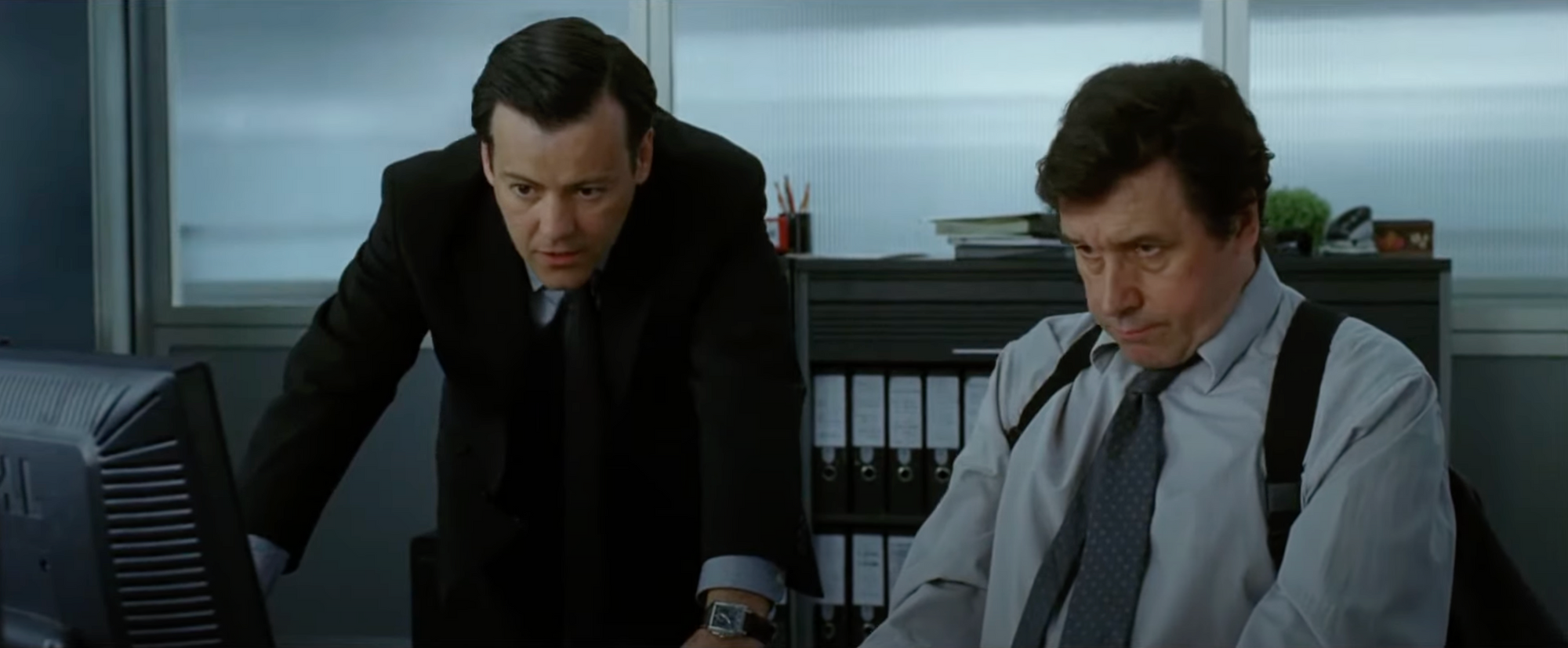
Mr. Finch quickly brushes past this summary to talk about what he is really interested in, but this quick mention leaves in its wake a whole list of questions that, even unanswered, paints a tapestry for the viewer.
In order to say "before and after" something without saying what it is, the speaker has to be implying that the event is well-known. It's Hiroshima, it's the Holocaust, it's the death of Julius Caesar. But, we the audience, never find out what it is.
To mention this unknown event so casually brings a rich flavour to the world in which the story takes place without changing or influencing the story in any way.
Joaquín Sorolla stands apart from other impressionist painters due to his effortless control of light and its reflections from many different materials. A flourish of his brush can bring a sense of movement to a static scene, bringing to mind the buffeting winds or a wave crashing on a pebble beach.

A simple distortion of the light doesn't influence your knowledge that the subject of the painting is a young boy leading a horse out of the water, but it completely changes the character, and your experience is made richer for it.
A final example of a Narrative Magnifier can be found in the movie Aquaman, starring Jason Momoa, Amber Heard, and Willem Dafoe. At this point in the story, we have been introduced, at least on a surface level, to the vast, underwater world of Atlantis and its seven kingdoms. We have seen transportation, architecture, customs and border patrol, and all manner of advanced technology supporting the above.
The titular character, also known as Arthur Curry, is meeting in secret with Mera and Vulko to discuss a recent attack on the surface perpetrated by King Orm of Atlantis, Arthur's half-brother.
"It wasn't an attack.", said Vulko, "Legally, he's not allowed to, yet."

The inclusion of "legally" sets the mind racing. This means there is a legal system in this technological utopia that we have just been introduced to. The King of this realm, who we assume has unchecked power, in fact has his power checked by this legal system. Context of our own incredibly complex and impentrable legal system fills the mind and attaches it to this new world.
It turns a villain that might otherwise be lazily presented as The Big Bad into a character with his own plans and aspirations, scheming to work around the legal framework and politics of his kingdom. Without this one phrase, a whole dimension would be missing from the character, leaving the presentation bland and unfulfilling.
To return to the earlier definition of Narrative Magnifier: a small phrase that causes a disproportionate expansion of context in the reader's mind. After reviewing these examples, a common thread emerges.
The technique relies on context that the reader already knows: modern transportation and logistics networks, complex geopolitical history, and mind-bending legal systems and political intrigue.
The Narrative Magnifier serves as a small, but necessary, connection between this known context and the new world of the story. It is the chink in the dam that floods the story world with complexity that is already well-understood.
I enjoy this way of telling a story, and if this technique already has a name, I would be interested to know it. In absence of such a name, I humbly submit: the Narrative Magnifier.
Follow Tela Network on LinkedIn:
linkedin.com/company/tela-network
Follow Tela Network on Twitter:
twitter.com/tela_updates
Join Tela Network and become a consultant:
tela.network/join
Join the Tela Social channel on Telegram to get every new update:
t.me/tela_social
Follow Tela Network on Instagram:
instagram.com/tela_updates
